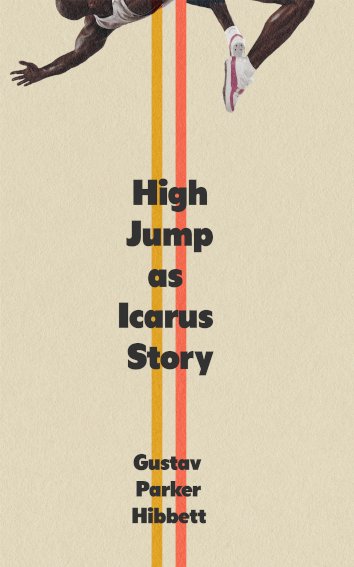
Hibbett reclaims monstrosity in High Jump as Icarus Story
Gustav Parker Hibbett moves through the world with exclusion fused to the bones. First, from English studies; they were pushed to study STEM at Stanford on a scholarship: “We want you and your body in STEM, we want to champion it there but everywhere else, not so much.” they share in an interview to The University Times. Then, from an MFA in Creative Writing, where they felt that work outside of a white perspective was deemed not worth engaging with. In academic spaces, places of the mind, Hibbett is brought back to their body – black, queer –, and they exist apologetically, the way their father taught them: “quickly and quietly”.
As readers, we understand that the poems build towards liberation. Gustav Parker Hibbitt sees the high jump as a place to embrace their femininity, like “Ice Princess”, where they are “floral”, a “queen wear[ing] feathers”.
In the fragments of flying mid-air, Hibbett ignores the lines (mind/body binary, and other Western separations) before being pulled back by gravity. They are reminded of this lesson in an everyday moment, as “a child is spilling her orange marker outside the lines” (Colouring Book):
Growing up,
I saw colouring as a test, dexterity
predicting concentration, futures
where I grew up clean and trim, so
my hands shook and I always failed.
I didn’t know you could ignore
the lines.
Although the high jump is where the poet transcends the body, they are aware that as an athlete, “I was a body that only happened to have a head attached to it”, and as their body failed them, they were only promised to “end the way a firework does”.
High Jump as Icarus Story is not about proving that they are not a failure. Hibbett identifies as the minotaur, half-human, half-bull, metaphor of the mixed race body. In an interview with 32 Poems, Hibbett explains being pulled to figures of monsters: “Monstrosity allows us to write back against dehumanisation while also showing us what it means to be human.”
Building on Ocean Vuong’s view of monsters, “a monster is not such a terrible thing to be. (…) To be a monster is to be a hybrid signal, a lighthouse: both shelter and warning at once.” (in On Earth, We’re Briefly Gorgeous), the poem Tortoise, which opens the collection, confirms that High Jump as Icarus Story is about reclaiming monstrosity. Hibbett writes:
you train with tortoise push-ups
and there isn’t much room for arm
or leg muscles to bend but still
you bend them up and down and up
Hibbett’s poems are varied in form and rich in metaphor as if to say: you cannot pin me down. Some poems are dense and neat, some poems rush into raw feelings, and some poems are stories told at the kitchen table. Some poems are prayers, with words sparse like clouds on the page; and there is the diversity statement, which reads as an exasperation at the display of trauma required to access scholarships.
The way Hibbett’s immersion in Irish literature informs their understanding of the Black American experience, I couldn’t help but draw parallels with my own experience as a queer woman. The way my body is never fully mine, the way displaying my trauma is almost a requirement to belong in the literature world, and what spaces I can be myself in without performing on “circus rings”.
I look forward to reading Gustav Parker Hibbett’s future work, which I expect will further blend poetry with creative non-fiction, as they are writing ethnographic essays for their PhD at Trinity Dublin College.
The last two poems From a West Cork Farm in Winter and From Here I See Tomorrow act as an opening for future explorations. On the farm, the poet settles in, “burrowed deep into the rhythm of (their) days”:
We were luminous, like we’d washed away
Our need for purpose in the muddy water,
Like we could live in wonder’s maw forever.
The chapter in the country is only a semi-column; turn the page, and already a new landscape, the poet is at sea, where “sailboats are racing”. “From here I see tomorrow”, ponders the poet.
High Jump as Icarus Story is available from Banshee Press for €12 plus P&P from Amazon (c. £10) in the UK.
Éloïse O’Dwyer-Armary (she/they) is a bilingual poet born in France, based in Sussex, UK. She is a PhD researcher in ecopoetry at the University of Brighton and the recipient of a Develop Your Creative Practice grant by Arts Council England. She is the author of Body Compost & other ghost poems, Pink Goo, director of Collections Of Queer Poets and co-producer of the podcast Poetry To Your Ears. Their work has previously been published in Magma, Young Poets Network, Happiful Magazine, Fawn Press, Sunday Mornings At The River, The Shallot, Powders Press, Aghh! Zine and other zines.
